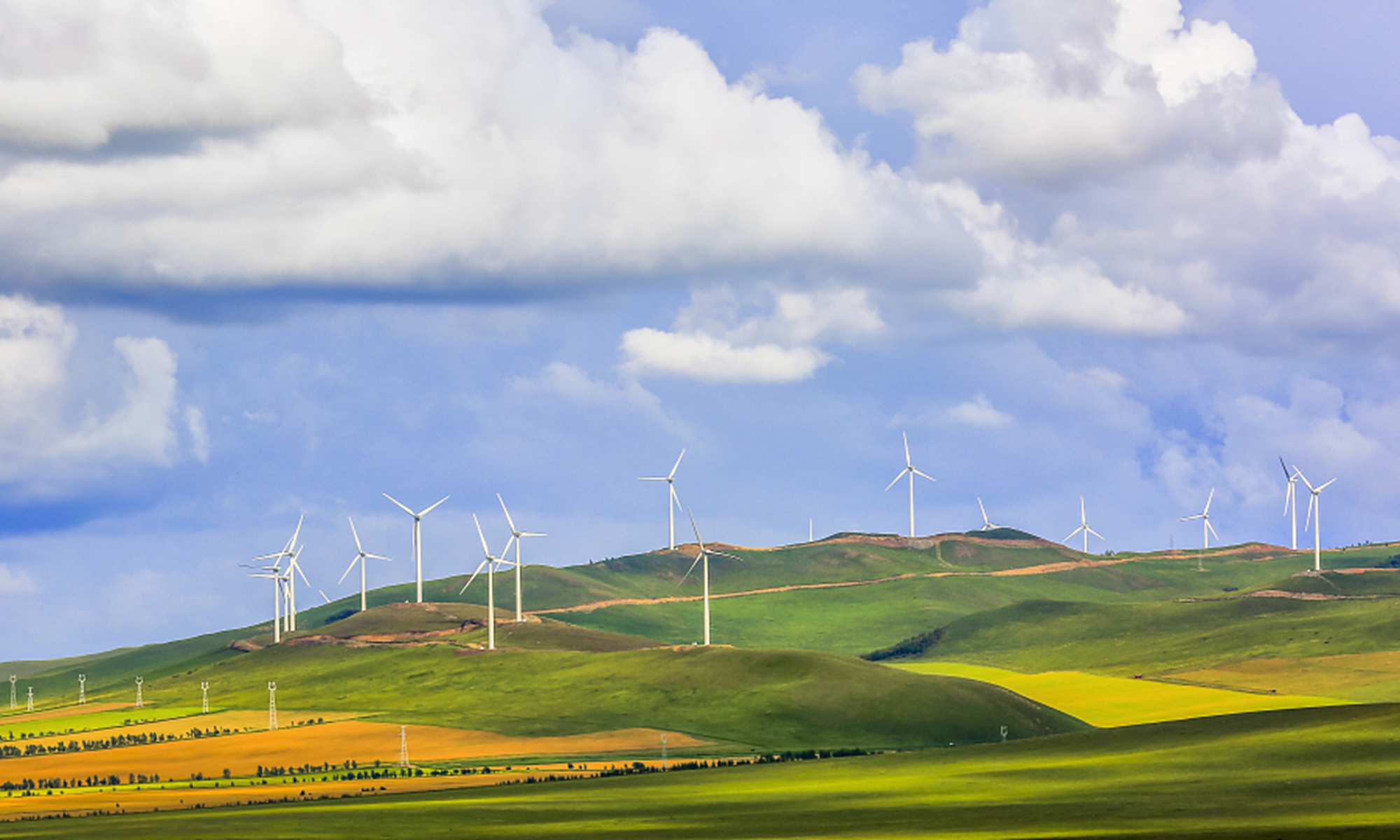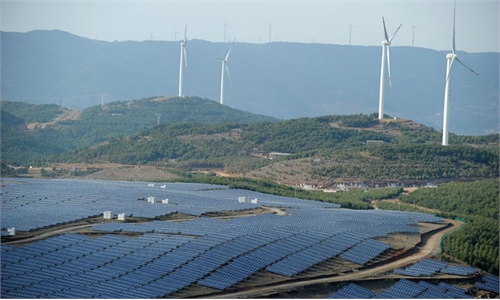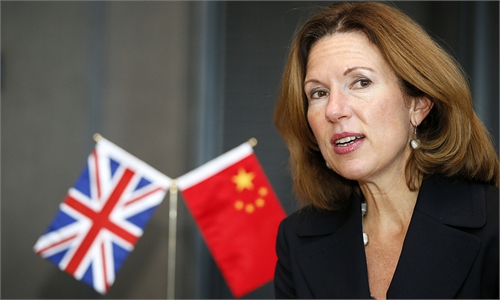
Climate Photo: VCG
While commending China for its actions in recent years to combat climate change in a speech on Monday, UN Secretary-General António Guterres called on China to set "ambitious" goals to combat the environmental crisis in the run-up to the 26th United Nations Climate Change Conference (COP26) to be held Glasgow, the UK.
Coming at a time when the US and some Western countries appear to be stepping up pressure on China to make more commitments ahead of the key summit, Guterres's remarks were quickly seized by certain Western media outlets to repeat cliché claims and criticism of China's commitments to combat climate issues. In doing so, they blatantly disregard China's bold plans and efforts, while completely ignoring incredible inaction on the part of the US, one of the world's biggest polluters.
Indeed, ahead of the Glasgow summit, there is an increasingly apparent trend that the US and some of its Western allies are attempting to mount pressure on China into signing up to more pledges and even use the climate change issue as a new tool in their geopolitical containment campaign against China. That won't bode well for the most important climate talks since 2015.
Apart from targeting China, the US and other Western advanced economies will also likely try to exert pressure on developing nations, such as China and India, to win more concessions at the Glasgow summit. Developing countries have long criticized developed countries for their double standard and lack of sufficient efforts that match the damage they have done over the years.
As far as China is concerned, contrary to the skepticism and pressure, the country has made what has been widely considered as bold commitments and has been moving swiftly to realize them. China pledged to peak its carbon emissions by 2030 and become carbon-neutral by 2060. In September, China announced that it would stop financing new overseas coal-fired power stations.
It is already making targeted efforts in these areas. On Tuesday, China's State Council, the cabinet, issued a new action plan to reach those targets, vowing to increase wind and solar capacity to as much as 1,200 gigawatts by the end of 2030.
Such actions are in line with China's domestic policies and long-term development goals. The Chinese economy is in the process of transforming into a high-quality growth model by shifting away from energy-intensive industries. It is also worth noting that a large component of China's greenhouse emissions is closely intertwined with economic and trade ties with the US and Europe, highlighting the need for global coordination and cooperation in this regard.
However, there is no way for the US and its allies to use climate commitments as a weapon against China. It would be unrealistic for them to use the issue to force China into making concessions that run counter to its national interests.
Chinese State Councilor and Foreign Minister Wang Yi already made this position clear when meeting US climate envoy John Kerry in early September. The US hopes to make climate cooperation an "oasis" within broader China-US relations, but if the "oasis" is surrounded by "desert," the "oasis" will sooner or later become desert, Wang said.
Climate change is a common challenge facing all mankind, but the pace of climate actions varies from country to country due to varying development stages. The Glasgow summit offers a desperately needed platform for coordinating global efforts. However, allowing certain powers to play geopolitical tricks will certainly undercut any potential outcome of the meeting.



